Let’s get started–
What to Read…
An Ordinary Violence (House of Anansi) is a 2023 novel by Adriana Chartrand, who is a mixed-race Native woman – her description — originally from Winnipeg. She now works in Toronto’s film industry. The book is jarring in that you don’t realize, till about half way through, what Dawn (the main character) has lived through and what she has seen. She first escapes to Toronto to start a new life, but feels she has to hide her identity even in her lowly job in social services. Dawn returns to Winnipeg to help out her father, and gets involved with her former best friend from school. And that is when the problems begin. This is a tough book, but the descriptions and details of Dawn’s life won’t easily be forgotten.
The Rooster Bar (Doubleday, 2017) by John Grisham is a quick read. Usually, I read him once or twice a year for an easy distraction. Around Christmas, I found this Grisham e-book in the library – so I downloaded it free. It was quite a read. As with most other novels, the first half is stronger than the second. I learned something. There are “lawyer mills” in the US –literally hundreds of private colleges that award law degrees. Because of federal US legislation, students can borrow the whole cost of attending law school including three years of sky-high tuition and some living expenses. Students qualify for the loans automatically. The government farms out the debt collection to a myriad of privately-run agencies across the US. The Rooster Bar focuses on three young people, two white men and a young woman of Senegalese background who attend a second-rate law college in Washington DC. As the book begins, all three students are halfway through third year – a few months from graduating. All three owe between $190,000 and $240,000 in debt! They know they won’t land jobs that pay more than $50K a year. So the three dream up a scheme to be debt-free. But to accomplish that, all three have to drop out of law school before graduating. This book is a great read, and makes us think about the toll of debt students in law schools –even here in Canada. The book is political, and there is a great twist or two near the end!
What Comes Echoing Back (Nimbus Publishing, 2023) is an excellent new novel by Leo McKay Jr. who lives near Truro, NS. His earlier book Twenty-Six, is a novel about the 26 men who died in the tragic Westray mine collapse. That novel was brilliant and peppered with Nova Scotia sensibilities and human outrage. His first book of short stories, Like This, was nominated for the Giller Prize. In What Comes Echoing Back, we meet two teenagers from different parts of NS, each disadvantaged and hobbled by their impoverished and difficult backgrounds. They meet at a music program in their high school. While some might find the lives of today’s teens in a small town not their cup of tea, I think this book is first rate.
Are You Willing to Die for the Cause? by Chris Oliveros is very exciting. It is a graphic novel about the beginnings of the FLQ in Québec in the ’60s. The art’s great, the cartooning and the history is fascinating. I’m not usually so keen on graphic books but this one is well worth reading. I downloaded it on my iphone and e-reader, but I’d recommend getting the book from the library (or buying it) because the pictures (in full colour!!) are tiny on your phone. Delightful. Not sure I agree with the rather centrist political view the author seems to hold – but it’s really a unique way of seeing history of Québec and something from a past many of us shared in spirit– if not in actuality.
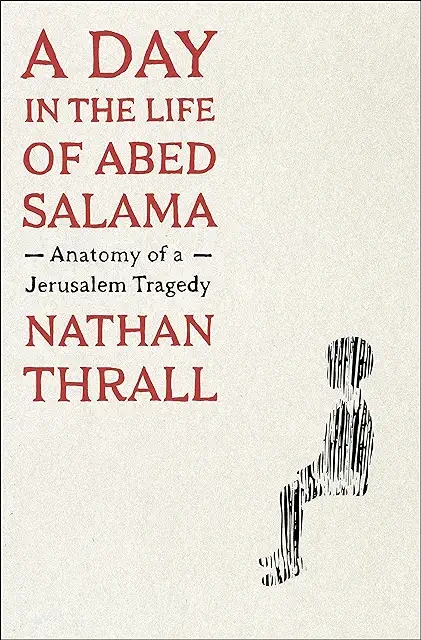
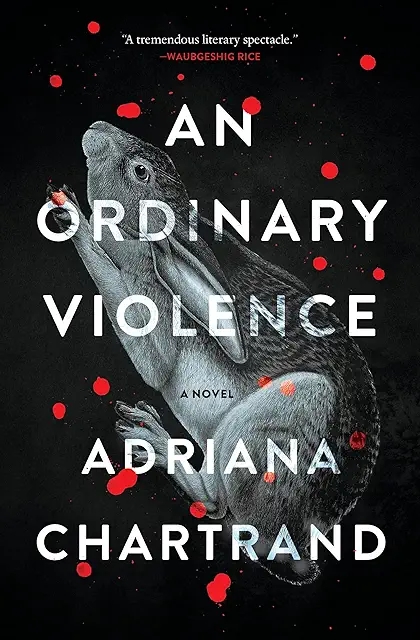
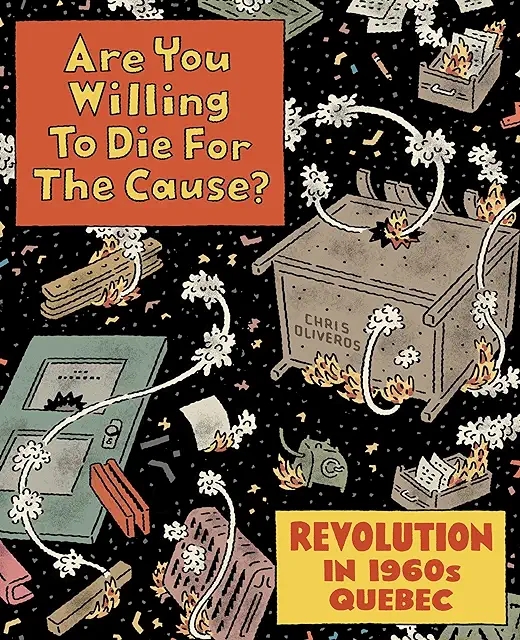
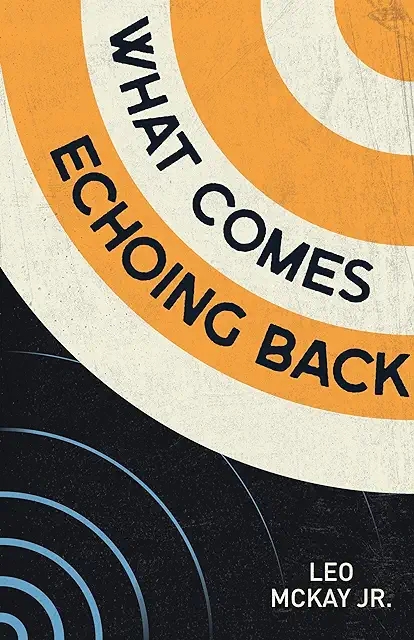
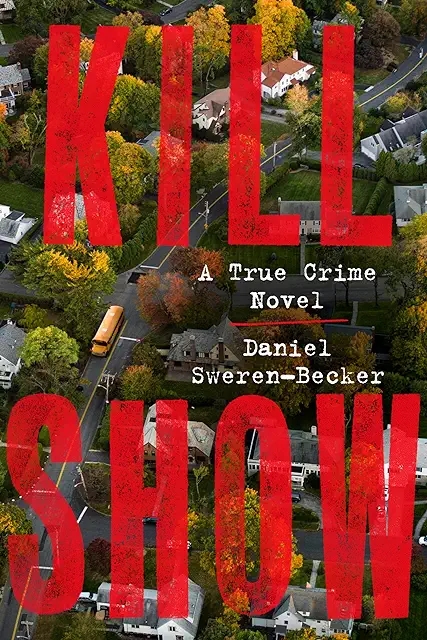
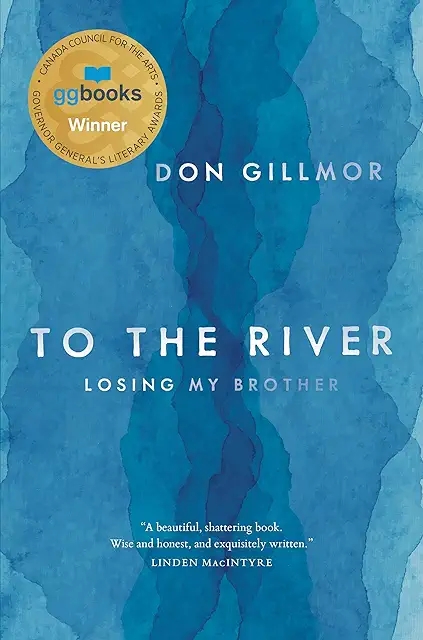
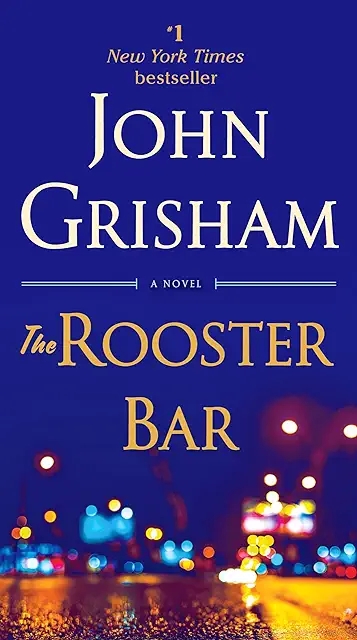
Don Gillmour is a well-known Canadian author. His book To the River, Losing My Brother (Penguin Random House) won the 2019 Governor General’s Literary Award. Of course, his brother’s suicide is not happy but what really happened to him is revealing. In 2006, Gillmour retraced the path his brother took in the months and days leading up to his death in the Yukon River. The author is in turn horrified, exasperated, sympathetic and loving in his descriptions. The brothers’ early lives in a middle class Calgary home set a scene that is at odds with the end of the brother’s days. Well written and shocking.
One day at the library, on a whim, I borrowed the 2023 novel, Kill Show: a true crime novel by Daniel Sweren- Becker. It’s unique because it reads like a play. A teenage girl is killed in a small town in Maryland (this is fiction); what we think happened, did not happen. There are about 10 characters – including her parents – who comment on where they were, what they saw – and who was really to blame. It’s a fun read, and the author’s take on the media especially reality TV, does figure prominently in the book.
Don’t stop writing about Palestine
A Day in the Life of Abed Salama by Nathaniel Thrall. Thrall is an American writer who has spent more than twelve years in Israel. Recently he and his wife and daughters thought of moving back to Chicago, as Thrall says, “It’s lonely being a Jewish critic of Israel”. His new book A Day in the Life of Abed Salama was released by the publisher just before the events of Oct. 7. Suddenly no one would promote his book; book launches were stopped and frankly the book was buried under events in Gaza.
“[Events] have made it harder for me to speak,” said Thrall, “Many people who’ve read A Day in the Life of Abed Salama they find it prescient; they regard it as a necessary book. But for some others, there’s this feeling that I’m bringing a message of nuance. I’m telling them about the lives of Jews and Palestinians in a situation that is clearly unjust, and [they feel] we can’t talk about an injustice in the face of atrocity…
“It’s a very raw moment: almost a post 9/11 moment in the degree to which people are afraid to express sympathy for the Palestinians, and I don’t yet know which attitude of the two is going to prevail.”
Nathan Thrall from an interview in The Guardian interview
I downloaded the book on Audible and listened during the holidays. The book is riveting. It is nonfiction based on a 2012 tragedy on one of Israel’s highways. A bus full of Palestinian children on a school outing (schools are either Jewish or Palestinian, in other words segregated) was hit by an 18-wheeler driven by a Palestinian driver.

Six children and one teacher were killed. Thrall focuses on five-year-old Milad, who died. Thrall has become close friends with the boy’s father, Salama. From interviews with onlookers, school staff, parents of the children and paramedics Thrall pieces together what happened. In a shocking narrative, the author shows the tremendous disadvantages the Palestinian parents faced in finding out about whether their children were alive or dead, the lack of sympathy from Israeli officials, and the inferior hospital care available to the Palestinian children. As a point of information, Thrall notes that if anyone – even a tourist — is injured or killed on an Israeli road or highway, they are entitled to compensation from a special government fund. However, Palestinians are exempt. This book is a must-read for anyone who wants to understand the day-to-day lives of humiliations and terror visited on West Bank Palestinians. It’s a fascinating read.
What to Watch…
I watched Rustin (Netflix). It’s a film about Bayard Rustin, an African-American, who helped organize religious campaigners, civil rights activists, and trade unionists for the March on Washington for Jobs and Freedom in August, 1963. Rustin was a huge fighter for Black justice, and a man who refused to back away from the fight against racism. In the 1930s, he was a member of the Communist Party; he left when the USSR made the pact with Hitler in the early 1940s. This Wikipedia entry sheds light on Rustin’s very impressive life of 75 years; he died in 1987. Rustin was a classically trained tenor, a musician, a teacher, a Quaker, a follower of Ghandi and a rebel. He joined forces with Martin Luther King Jr., but was ultimately sidelined by mainstream Black organizations and politicians. He was gay, something that in his day he felt he had to keep secret. In the last decade of his life he had a partner and was finally able to be more open. This film will wake you up and wonder how – with all the education and knowledge we have about race relations in the US, few of us have ever heard of this incredible organizer. A major flaw in the film is that women have no serious speaking parts – for example, in the role of Coretta King (ML King’s wife), the actor merely giggles and chit-chats with Rustin when he comes to dinner. Here’s the very lively trailer.
Netflix had a little festival of Palestinian films. I watch Bonboné which is 27 minutes long, as well as Like 20 Impossibles. Bonboné is a bit daring – it’s about a Palestinian couple’s way to conceive– while the husband is a prisoner in an Israeli jail. Here’s the trailer.
Like 20 Impossibles is only 16 minutes long. In this 2003 short film, a film crew tries to get through checkpoints in the West Bank to make their film. It was the first ever short film from the Arab world to be chosen as an Official Selection of the Cannes International Film Festival.
The terrible Tourist, and the tolerable Tourist
By mistake I watched The Tourist a terrible US-feature film starring Angelina Jolie. It’s worth commenting that her collagen-puffed up lips, sexy ball gowns and monosyllabic dialogue were little more than poor jokes. The film’s backdrop of Venice wasn’t bad, but the film itself is a disaster. Don’t even think about watching it on Prime.
I then watched The Tourist series (on Prime) which was filmed in the outback of Australia. It wasn’t great either. I’d say the first and last episode were possibly worth watching – skip the ones in the middle because they are boring. Believe me the story line won’t confuse you if you miss even three episodes. A northern Irish guy (what’s he even doing there?) survives a terrible car accident. When he wakes up in the hospital in a tiny dusty town he can’t remember his name, his past or what he’s doing there. To the rescue comes a shady woman who seems too much of a femme fatale to be waitress at the town’s greasy spoon. When the café blows up (naturally!) – the Irish stranger without a name or a backstory gets blamed. There’s a lot of blood, a lot of violence – all for nothing. The only bright spot in the series is the policewoman Helen, she’s actually only a police trainee, but she helps sort things out. She’s worth watching. Both Tourists are on Prime.
Still shots: Upper left (clockwise) Anatomy of a Fall, The Idealist, A Nearly Normal Family, Bonboné, Homeless in Finland (credit: Sergei Grits/AP).
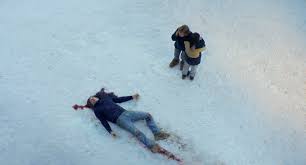
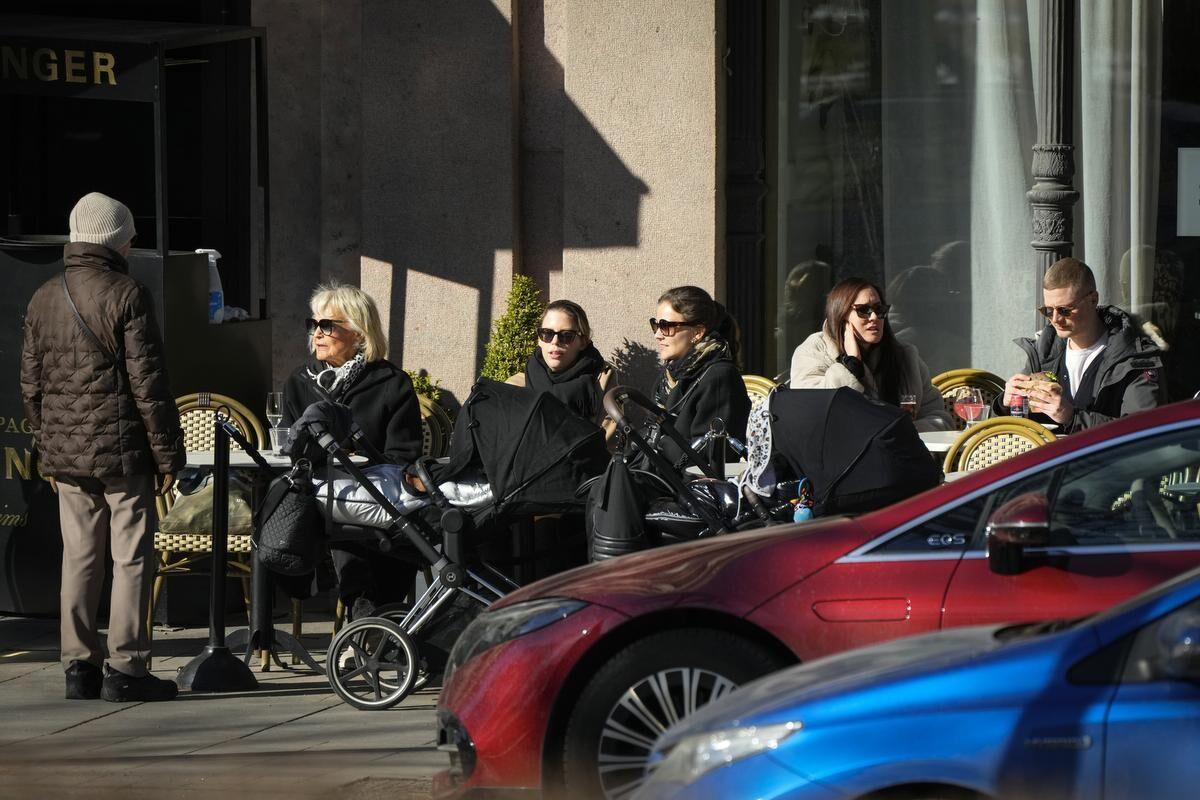
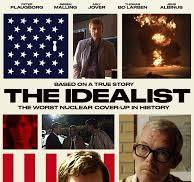
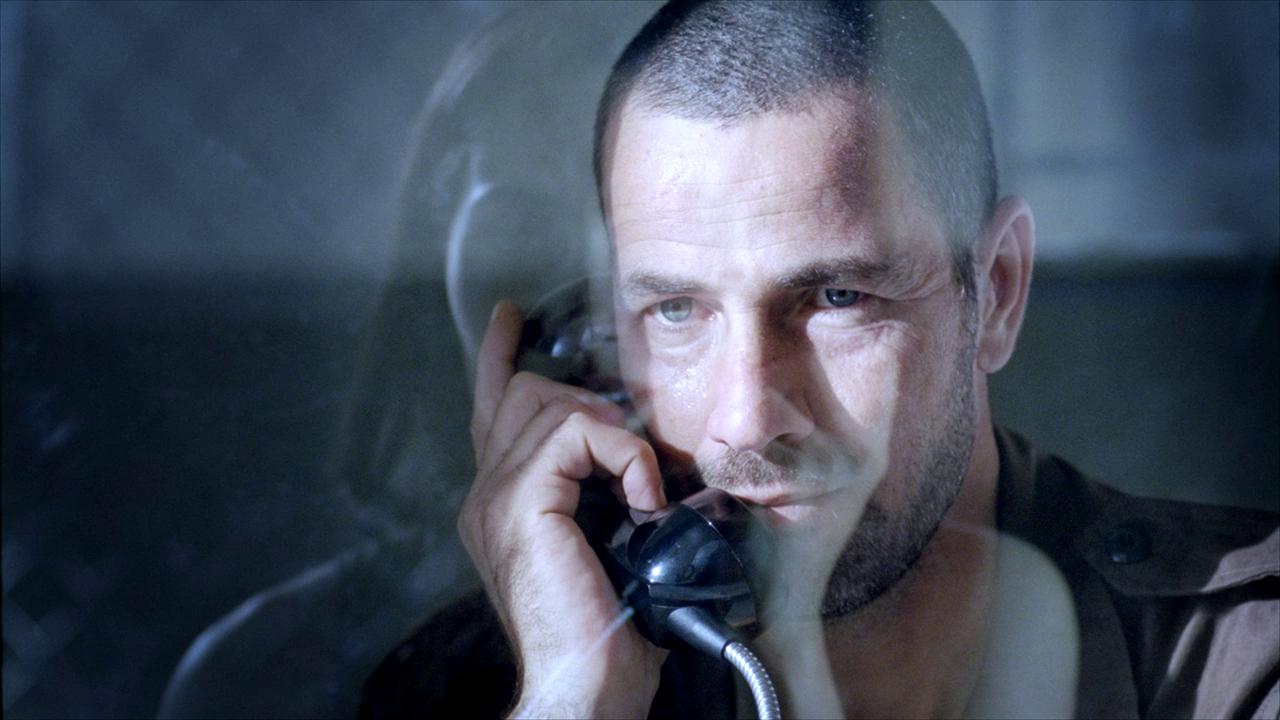
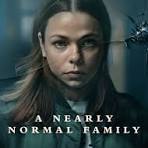
How Finland Solved Homelessness is a 26-minute documentary worth watching here. Helsinki is a city of more than 1.5 million people. Yet they have no homeless people. Not one. What the city does and how it does it – in a climate similar to ours, with serious social issues such as drugs, alcohol and major depression problems among the people – is wonderful. Here’s writer Linda McQuaig’s review of the situation and the film.
The Idealist on Kanopy is worth watching. In a true story, leading Danish journalist Poulo Brink discovers a group of workers at a military base in the 1980s who had come down with cancer. Brink uncovers the truth behind a nuclear accident during the Cold War– when an American B-52 bomber carrying four hydrogen bombs crashed in Greenland twenty years before during the end of the “cold war”. The Danish government refused to come clean about nuclear detritus on their land, so Brink went to the US to try to find out the depth of the coverup. There isn’t a woman with a speaking role in the film, which makes the movie all the more terrifying. It’s rather long, but well done. Here’s the trailer.
A Nearly Normal Family – is a Swedish six-part series on Netflix. A 15-year-old girl, Stella, is raped at summer sports camp by a counsellor. She tells her parents but they decide it’s not worth pursuing charges through legal channels. The mother, herself a lawyer, insists rapists nearly always get away with it and fewer than 5% are charged. Four years later, Stella, now a young woman, gets involved in a secret love affair with an abusive older man. This series is worth watching, it’s a “who dunnit;” it’s a look at the manners and mores of the middle class in Sweden, and it’s well done. The first three episodes are the best. Here’s the trailer.
Unforgotten, a series on Britbox, is brilliant. There are four seasons to watch, but that doesn’t seem to be enough! Detectives in London pursue cold cases, all have a twist, and a woman heads up the investigating team. The wonderful thing about the series is there is no rush, there is virtually no violence (except for a dead body under investigation), no use of guns, no car chases – just interesting and thoughtful police work. The series is a tonic for those of us sick of the good guy-bad guy scenarios, the jail cell confessions, and the lightbulb hanging from the ceiling interrogation rooms. None of that exists in this series — but we see the best in British crime shows. Highly recommended. The trailer doesn’t convey the excellence of the series.
Vjeran Tomic: The Spiderman of Paris is the subject of an excellent feature-length documentary film on Netflix. You won’t take your eyes off the screen. Tomic is an art thief who managed to lift five nearly priceless paintings off the walls of the Museum of Modern Art in Paris and get away with it (for a time). He is a sympathetic character, and the “crime” re-enactment is delightful as we catch a glimpse of the richer parts of Paris. We see the inside of the monied apartments (from which he heisted jewellery and small exquisite paintings). We also see life from the rooftops – scaled by Tomic — of the city. Thoroughly enjoyable, Tomic narrates the film; his knowledge of art is extensive and in the end – when he finally settles down to a post-prison life– we hear how much he misses the excitement, the skills and beauty of his former career. Excellent. The trailer is here.
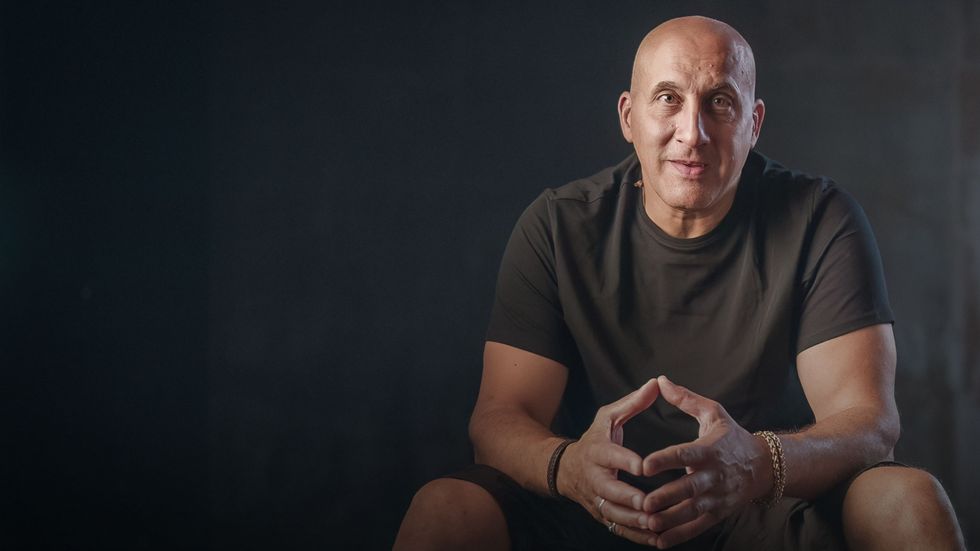
Anatomy of a Fall — is a French film made in 2023. It’s on Netflix. It’s brilliant and absolutely riveting. A German woman is accused of murdering her French husband in their remote home in the Alps, near Grenoble in the middle of winter. The only witness is believed to be their 11-year-old son. The mystery of what happened, when and why unravels slowly. It is a great trial and court room drama that is tense and believable. The ideas of the wife, a writer and a foreigner, who is an ‘outsider’; the son who is mainly homeschooled and apart from other children; the thinly masked notion of the surveillance French state providing support and justice to the family – all of this is well-explored by a woman director, Juliet Triet. The excellent and credible lead actor is Sandra Hüller. Triet has dared to criticize Macron and the French government for their “commercialization of culture” which has threatened the state’s continued support of national cinema. Triet’s outspokenness was punished by her government’s refusal to nominate Anatomy of a Fall for an Academy Award. However, Anatomy did win the Palme d’Or, in Cannes in May 2023. Again watch it; you won’t take your eyes off the screen. Here’s the trailer.
Finally– here is a 15-minute documentary Field of Vision: The Family Statement which features the Sackler Family Statement to the US government. The Sacklers are the wealthy family that invented and pushed OxyContin. Over 500,000 Americans died because of using this drug, which netted the Sacklers more than $35 billion in sales. Their Purdue Pharma went bankrupt to avoid going to court; ultimately there was a settlement which you can read about here. It’s important to note that the Sacklers got immunity for life – that means no family can sue them for killing their relative(s). For more on the Sacklers, see my post here.
Watch this for today’s 15 minutes of outrage here.
The Walrus’ December ’23 issue has a great article “Why the Opioid Crisis is Rooted in the Housing Crisis”, well worth reading here.
Never forget Gaza
According to the CBC, Palestinian deaths (all nearly 25,000 of them in Gaza) do not merit the label of vicious. What an insult. Read all about it here in The Breach.
Ars Gratia Artis - Art for Art’s Sake
There’s a lovely write-up Tracing the Hand of Botticelli, about Sandro Botticelli’s 15th c. drawings here. Who doesn’t love Botticelli? Reading about him and his art is a real tonic! Of course this painting of Judith with the head of Holofernes is the exact opposite! For more on Botticelli and this painting, read this.

What Podcasts to Listen to…
The Guardian Long Read ‘They treated me like an animal’: how Filipino domestic workers become trapped is well worth listening to. It told me a lot I didn’t know. For example, the Philippines nets more than $31 billion annually in remittances from domestic workers who send money back to their families. Seventy percent of domestic workers have to share their rooms with the rich families’ children, or sleep on the floor. About 50% of domestic workers don’t have enough food to each, live from scraps from the table, and are often not paid their wages. Saudi Arabia, Kuwait, and Hong Kong are major countries where Philippinas go to work as domestics.
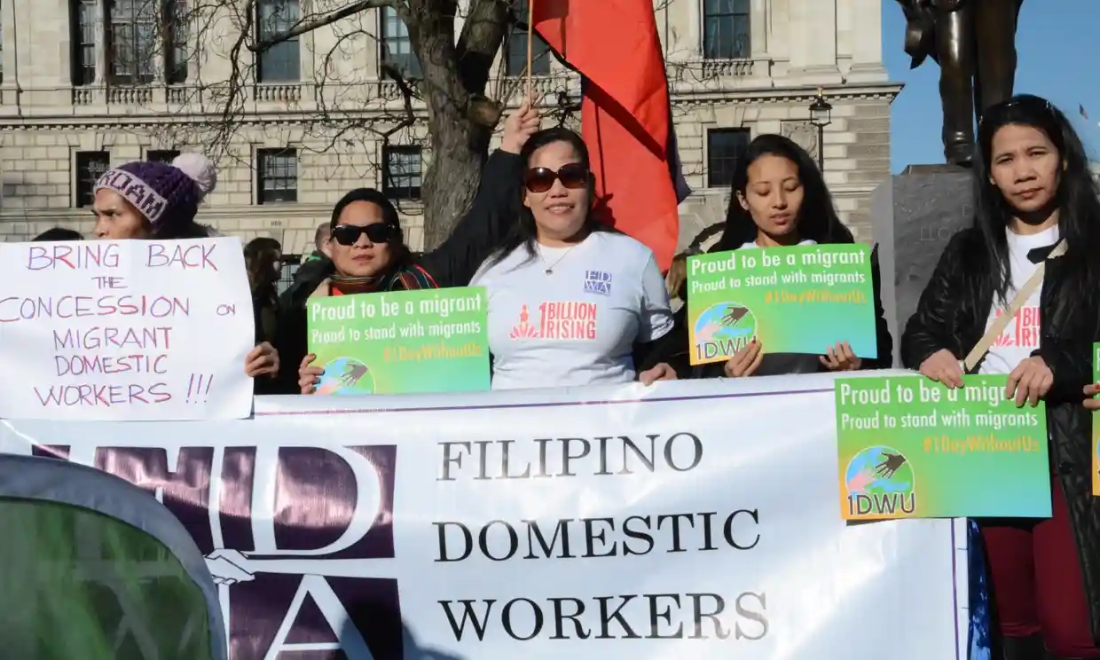
Gaza is still the issue…
Why is the Israel-Hamas conflict so deadly for journalists?, is a 32 minute-rundown — a podcast — of the facts behind the more than 100 targeted deaths of media reporters in Gaza, in the first 8 weeks alone. Here it is.
Sorry I won’t be recommending podcasts on Canadaland anytime soon. Because of owner and host Jesse Brown’s self-serving and ridiculous soliloquy about how endangered Jews in Toronto are because of pro-Palestinian protests about Israel’s war on Gaza (here it is), I’ve cancelled my subscription. Since the National Post praised Jesse to the skies for his support of Israel – I don’t want to support Jesse Brown’s journalism.
On the Nose is a podcast from Jewish Currents magazine in the US.
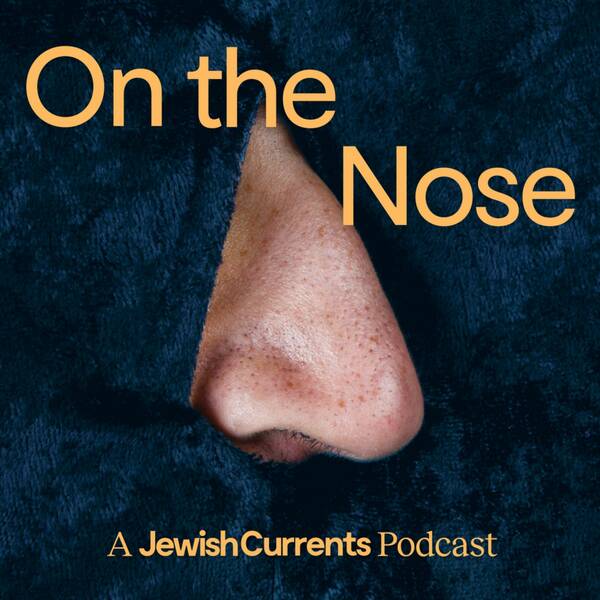
I just started listening to it. A recent program has a nice 40 minutes devoted to why major US unions have historically supported Israel and now they are reconsidering their position.
“On the Nose, news editor Aparna Gopalan speaks to historian Jeff Schuhrke, organizer Zaina Alsous, and journalist Alex Press about the labor movement’s deep imbrication in Zionism and militarism, the rank-and-file efforts that have challenged this status quo over the decades, and what’s at stake in labor embracing an anti-imperialist politics.”
The podcast also pays attention to some exciting new labour leaders across the border. Here it is Labor’s Palestine Paradox.
For Something extremely delightful and funny!
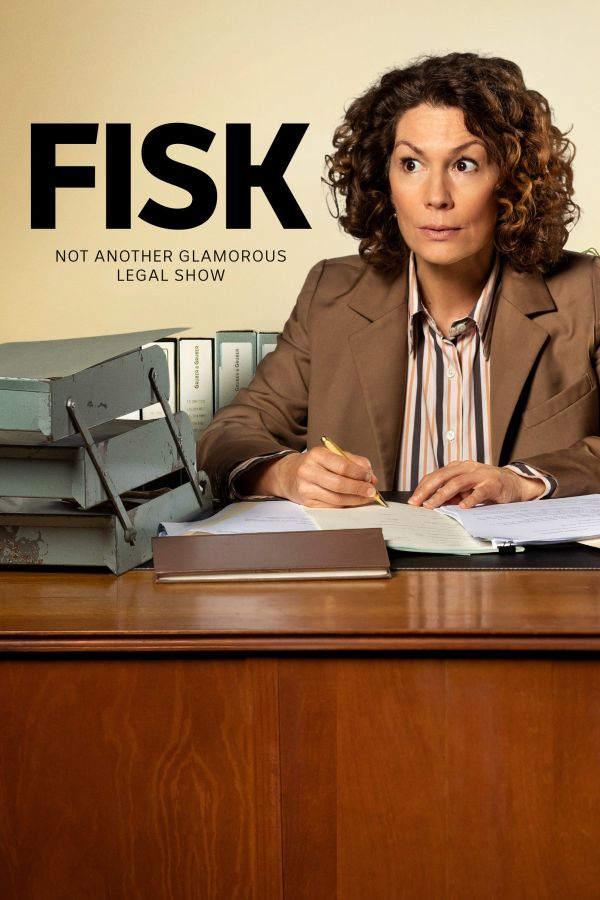
You must watch Fisk. Helen Tudor-Fisk is a lawyer Melbourne, Australia. She was fired from one law office, fell on hard times so the only job she could get was in a seedy wills and probate office run by a lazy lawyer. His sister, the office manager, is a disbarred lawyer. The office’s poorly paid paralegal is a young Chinese-Australian man who alternates between trying to get Fisk into trouble with her new employers, and conspiring with Fisk against them. This is a hilarious series, great timing, good jokes and each episode is only half an hour. You can watch several just for the joy of laughing out loud. Watch it on Netflix.
From the “Controversy over Coffee Department” watch this –only 10 minutes
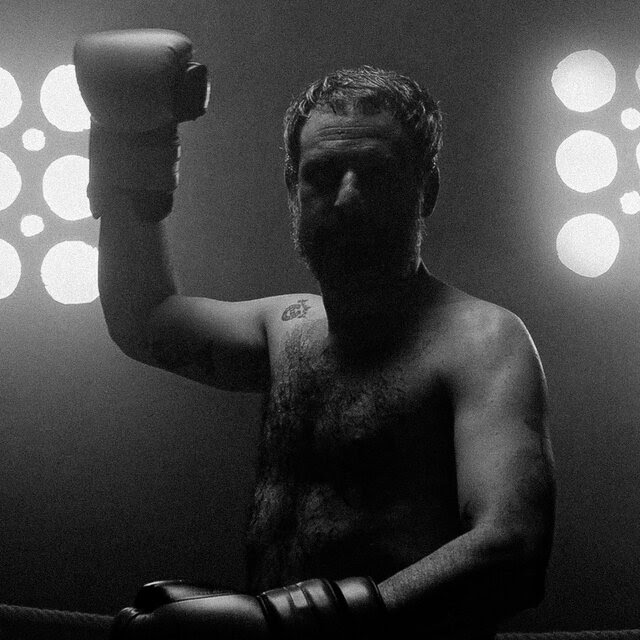
Featured painting at the top: Sandro Botticelli, Mystical Nativity (detail). Painted c. 1501, tempera on canvas, 108.6 x 74.9 cm. You can find it in the National Gallery, London. The entire painting is below: you can read more on this Renaissance painting and the artist here.
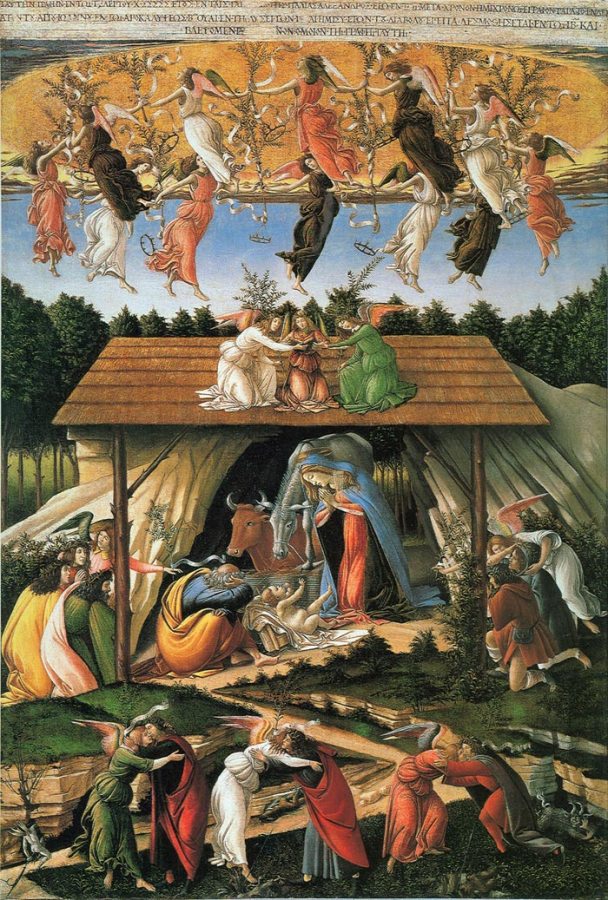

Hi Judy, Interesting blog! I’m also looking to touch base with you regarding a good hotel in Bologna near the old town centre? You can email me at: yoga.mschoales@gmail.com –if you have a recommendation?
LikeLike
I’m going to send your note to my friend Val because she was recently in Bologna.
LikeLike